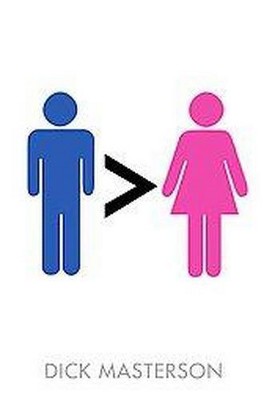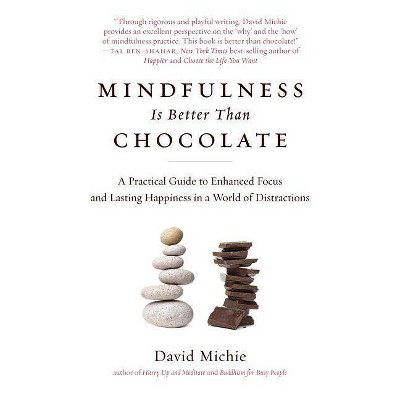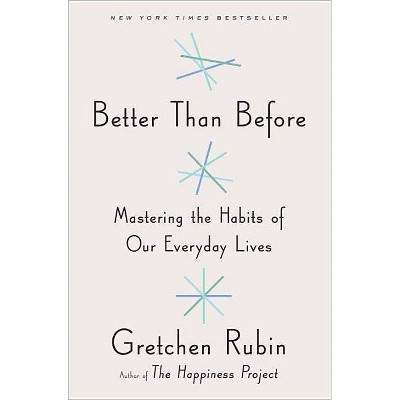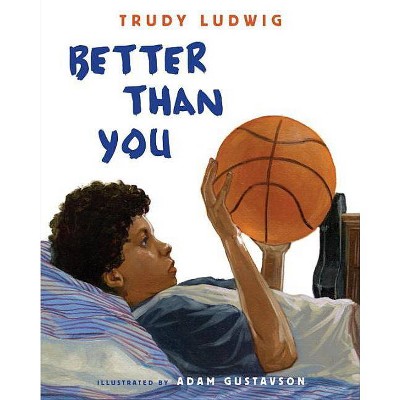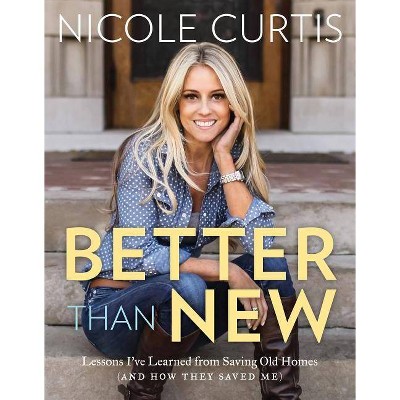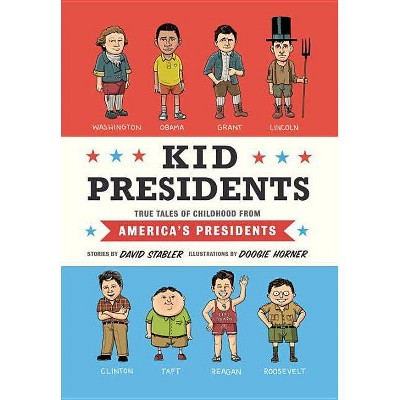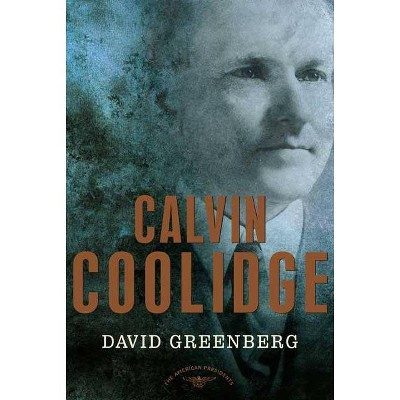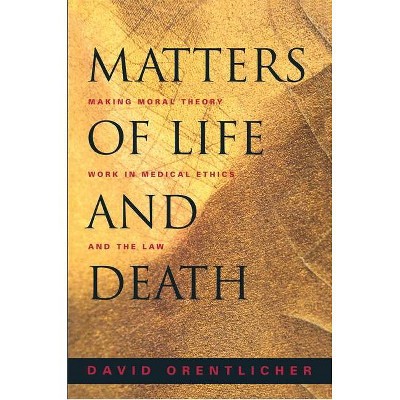Two Presidents Are Better Than One - by David Orentlicher (Hardcover)
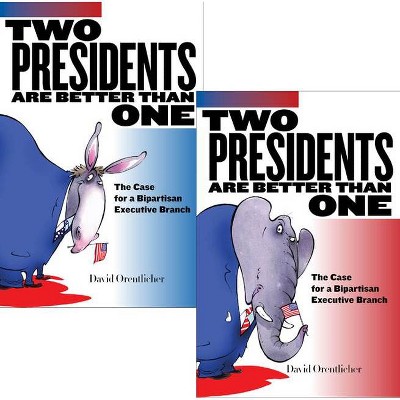
Similar Products
Products of same category from the store
AllProduct info
<p/><br></br><p><b> Book Synopsis </b></p></br></br>"Many Americans are unsatisfied with politics. Simultaneously, we are hesitant to question the basic soundness of our constitutional system. In this refreshingly provocative book, David Orentlicher explains why it is due time for us to reconsider dominant ideas about the presidency, now arguably our most powerful political institution. Challenging the conventional wisdom that the best executive is necessarily a unitary executive, Orentlicher makes a wonderful case for why 'two presidents are better than one.' Sure to be of interest to political scientists, legal scholars, as well as informed citizens justifiably worried about the fate of American democracy, this fascinating book dares to challenge everything you thought you knew about one of our favorite political institutions."--William E. Scheuerman, Indiana University "Can Orentlicher be serious in calling for a plural executive? The answer is yes, and he presents thoughtful and challenging arguments responding to likely criticisms. Any readers who are other than completely complacent about the current state of American politics will have to admire Orentlicher's distinctive audacity and to respond themselves to his well-argued points."--Sanford Levinson, author of <em>Framed: America's 51 Constitutions and the Crisis of Governance</em> When talking heads and political pundits make their "What's Wrong with America" lists, two concerns invariably rise to the top: the growing presidential abuse of power and the toxic political atmosphere in Washington. In <em>Two Presidents Are Better Than One</em>, David Orentlicher shows how the "imperial presidency" and partisan conflict are largely the result of a deeper problem--the Constitution's placement of a single president atop the executive branch. Accordingly, writes Orentlicher, we can fix our broken political system by replacing the one person, one-party presidency with a two-person, two-party executive branch. Orentlicher contends that our founding fathers did not anticipate the extent to which their checks and balances would fail to contain executive power and partisan discord. They also did not foresee how the imperial presidency would aggravate partisan conflict. As the stakes in presidential elections have grown ever higher since the New Deal, battles to capture the White House have greatly exacerbated partisan differences. Had the framers been able to predict the future, Orentlicher argues, they would have been far less enamored with the idea of a single leader at the head of the executive branch and far more receptive to the alternative proposals for a plural executive that they rejected. Like their counterparts in Europe, they might well have created an executive branch in which power is shared among multiple persons from multiple political parties. Analyzing the histories of other countries with a plural executive branch and past examples of bipartisan cooperation within Congress, Orentlicher shows us why and how to implement a two-person, two-party presidency. Ultimately, <em>Two Presidents Are Better Than One</em> demonstrates why we need constitutional reform to rebalance power between the executive and legislative branches and contain partisan conflict in Washington.<p/><br></br><p><b> Review Quotes </b></p></br></br><br><p>A fascinating challenge to both conventional wisdom about the presidency and to the complacent belief that the Constitution of the United States is the source of our virtues rather than our contemporary problems.</p>--Mark Graber, University of Maryland Francis King Carey School of Law<br><br>[Orentlicher] raises some concerns about the level and role of partisanship in American democratic governance. He is right that a discussion about such concerns is vital to the success of democratic processes....Summing Up: Recommended.-- "Choice, J. Twombly, Elmira College"<br><br>A pipe dream of a book that dares to suggest that we can actually get along, politically speaking. The Founding Fathers, writes Orentlicher (Law/Indiana Univ.), envisioned the presidency as a substitute for the British royal family, a constitutional monarch, if you will. The Congress was supposed to act with deliberation, the president with all due speed, and thus, both order and energy would come to the national government. That vision, Orentlicher argues, has been betrayed by the growth of the imperial executive branch, the concurrent growth of political parties and party ideology, and the still more concurrent gridlock that seems to characterize the legislative branch and its interface with the executive. Given all that, the author proposes stealing a page from the French and electing a pair of executives, one from the winning party and one from the runner-up, a scheme that has the virtue of making room for a third party in a way that the current two-party system does not. It is to be noted, of course, that the prime minister/president system of France would likely not translate neatly to our current Constitution, which, of course, would require emending. Orentlicher argues that two executives, a senior and a junior partner, would better represent the now-divided polity and would be more efficient than the single-executive model, restoring some of the due speed the Founders hoped for. The author closes by noting that even if his proposal is a bit pie-in-the-sky, he hopes that even considering it will admit some air into a stagnant political debate and recognize the connection between the one-person, one-party president and the dysfunction in Washington, D.C. A novel and provocative thesis worth hearing out.-- "Kirkus Reviews"<br><br>A well researched and creative look at how to break the shackles of Washington gridlock. Instead of accepting the status quo of our checks and balance system he rethinks the wheel of Executive Power. Highly recommended.--Douglas Brinkley, Professor of History, Rice University and Fellow, James Baker, III Institute for Public Policy<br><br>Can Orentlicher be serious in calling for a plural executive? The answer is yes, and he presents thoughtful and challenging arguments responding to likely criticisms. Any readers who are other than completely complacent about the current state of American politics will have to admire Orentlichers distinctive audacity and to respond themselves to his well-argued points.--Sanford Levinson, author of Framed: America's 51 Constitutions and the Crisis of Governance<br><br>Many Americans are unsatisfied with politics. Simultaneously, we are hesitant to question the basic soundness of our constitutional system. In this refreshingly provocative book, David Orentlicher explains why it is due time for us to reconsider dominant ideas about the presidency, now arguably our most powerful political institution. Challenging the conventional wisdom that the best executive is necessarily a unitary executive, Orentlicher makes a wonderful case for why 'two presidents are better than one.' Sure to be of interest to political scientists, legal scholars, as well as informed citizens justifiably worried about the fate of American democracy, this fascinating book dares to challenge everything you thought you knew about one of our favorite political institutions.--William E. Scheuerman, Indiana University<br><br>This is one of those rare books where you move from initial bewilderment to skepticism to self-questioning to enthusiasm. It is time to question the constitutional legacy of the Enlightenment, and Orentlicher provides a solid, out of the box revisitation of constitutional idolatry.--Chibli Mallat, Presidential Professor of Middle Eastern Law and Politics, University of Utah<br><br>Two Presidents Are Better Than One is well written, carefully researched, and thoughtfully argued.-- "The Federal Lawyer, Louis Fisher"<br><br>With clarity and grace, David Orentlicher presents an intriguing and innovative idea intending to bring shared power and tempered partisanship to the presidency. A two-person presidency, he argues, would improve federal decision-making and contain the ever-expanding power of the executive. This book makes a persuasive argument for sweeping reforms to avoid the risks of an imperial presidency.--Lee H. Hamilton, former U.S. Representative; Director, the Center on Congress at Indiana University<br>
Price History
Price Archive shows prices from various stores, lets you see history and find the cheapest. There is no actual sale on the website. For all support, inquiry and suggestion messages communication@pricearchive.us
